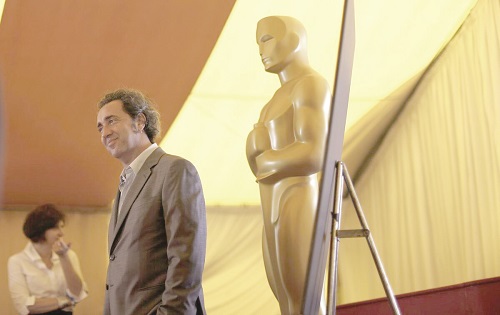Italian Talents at the Oscars
TORONTO – With the 97th Academy Awards now in the can and the perennial “shock wins” and “snubs” recorded into history, we can reflect on the Italian perspective of the momentous evening. While Italian talents certainly weren’t the Belle of the Oscar Ball, there was one Italian icon nominated for the first time in her career. Daughter of Ingrid Bergman and Roberto Rossellini, Isabella Rossellini was recognized for her supporting role as Sister Agnes in the Vatican thriller and Best Picture nominee Conclave. The statuette however, inevitably went to Zoe Saldana for her performance in the critical darling Emilia Perez.
Despite losing out on her first opportunity to win an Oscar, her performance in Conclave marks a high point in her career – playing a nun carrying rare authority in the Vatican via extremely extenuating circumstances. Rossellini on her character: “She’s outside of the pope’s election cycle, so when she speaks, she just speaks the truth, what she’s seen, and then she goes back to silence. But I love that in the film, she’s like a shadow, and her presence throughout the film makes you ask, ‘Is she really just preparing the room? Is she just collecting the keys to their bedroom?’ She’s listening, and that’s so powerful”.
While not nominated, the work of two other Italian talents were reflected in the Best Live Action Short category. Composer Fabrizio Mancinelli and cinematographer Andrea Gavazzi’s worked on Anuja and A Lien respectively. Anuja is an American-Hindi language film about a 9-year-old girl Anuja whose mathematical brilliance earns her an escape from garment factory work.
Mancinelli recounts how he met the filmmakers: “The journey with Anuja began unexpectedly in the summer of 2023, after a screening at LMU of a documentary I had scored. A recently graduated film producer from India, Krushan Naik, approached me to express his appreciation for my work, and we exchanged Instagram contacts. That moment turned into one of the most meaningful collaborations of my career”.
Speaking on the “raw visual language” he created for A Lien, a film about Immigration and Customs Enforcement, the Italian-Brazilian Andrea Gavazzi explained how the film’s budgetary constraints influenced his stylistic choices and techniques. His feeling however that A.I. technology may eventually encroach on artistry and eliminate creative think tanks remains a growing concern for Gavazzi.
“The beauty of filmmaking lies in the collectivity—the collaboration, the shared effort, and the memories you create with a team of people. It’s about the relationships you build on set, the emotions you capture, and the stories you tell together. These human elements are irreplaceable, and that’s what makes cinema truly unique”.
As the curtains close on another Oscar night, it’s a point of pride to note that the Best Foreign Film category was created in 1956 because of Vittorio De Sica’s Sciuscia (1946) and Bicycle Thieves (1948). Both films were awarded an honorary Oscar, because they had so captivated American audiences. Not long after, the Foreign Film category was born. A category dominated by Italy’s 14 wins.
In the pics: Rossellini (image courtesy of Focus Features) and Sorrentino (image courtesy of Getty Images)
Massimo Volpe is a filmmaker and freelance writer from Toronto: he writes reviews of Italian films/content on Netflix





